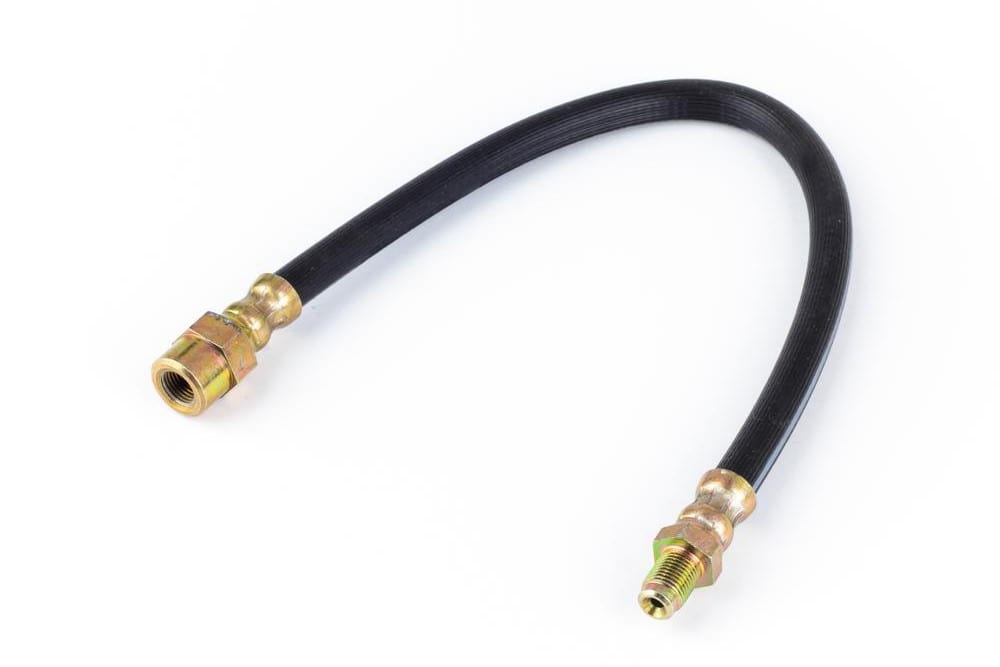

The braking systems commonly found on modern vehicles are composed of several components that work together to slow and stop the vehicle. When the brakes are applied, brake fluid is pumped from the master cylinder to the calipers in order to expand the caliper piston and slow the vehicle. Before the brake fluid reaches the caliper however, it must first go through a brake hose.
Brake hoses are the flexible hoses that attach the caliper to the wheel cylinder. They must be flexible in order to accommodate for the vehicle’s suspension travel when turning the wheels and traveling over uneven surfaces. They are an important part of the braking system, and when they do fail, they can cause problems for the rest of the system. When brake hoses do begin to have problems, they will usually display a few symptoms that can alert the driver that a potential problem has occurred.
1. Mushy brake pedal
One of the first symptoms commonly associated with a potential problem with the brake hose is a mushy brake pedal. If brake hoses develop any leaks that will compromise the pressure of the system, this can lead to a mushy pedal. This is not only a problem in that the brake feel will be abnormally mushy and therefore less responsive, it is also a problem because it will cause a compromise in hydraulic pressure, which the brake system uses to operate. Because the braking system is what stops the vehicle, any sort of compromise to its operation is a compromise to the safety of the vehicle.
2. Worn or damaged brake hose
Another common symptom of a bad or failing brake hose is damage or wear to the exterior of the hose. Brake hoses are subject to constant pressure, flexing, braking and turning, and as a result are made to withstand high pressures. Over time, however, with exposure to the elements, as well as high heat generated by braking, brake hoses can become worn out. They can develop cracks, tears, or even loose hanging threads, which all weaken the hose and its ability to hold pressure and leave it more susceptible to developing leaks.
3. Brakes not operating
Another more serious symptom of a problematic brake hose is a vehicle with inoperable brakes. The brake hoses are what feed the hydraulic brake fluid and pressure to the calipers so that they can slow the vehicle. If one or more of the brake hoses fails, the vehicle will not have brake pressure, and as a result will have inoperable brakes. A vehicle with inoperable brakes is obviously unsafe to drive, and should be serviced as soon as possible.
Because brake hoses are a part of the vehicle’s braking system. They inherently become an important component to the overall safety of the vehicle. For this reason, if you suspect that one of your brake hoses may be having an issue, have the brake system inspected by a professional technician, such as one from YourMechanic, to determine if your car needs a brake hose replacement.



